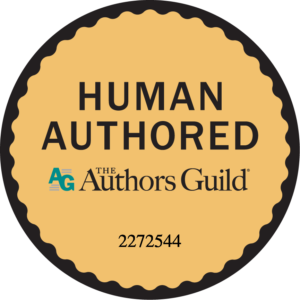Police Work and Conferences
Terry Odell

I’m off to Left Coast Crime today, so my responses to comments might be late. It’s a reader-based conference, so I’m hoping to meet new people and introduce them to my work. I’ll be on a panel called “Behind the Badge: Writing Authentic Police Procedurals.” I guess they got tired of putting me on the “sex” panel. If you’re attending, it’s Thursday at 2:30. If you’re not attending, it’s still Thursday at 2:30.
When it comes to police procedures, I’m so far behind the badge that I’ve crossed state lines. But, I do my homework before writing anything—let’s make that before publishing anything—because I often write what seems like it ought to be the case, but since I’m not a trained law enforcement officer, I have a wonderful retired homicide detective who will answer my questions and put me on the right track. And I’m smart enough to ask.
I was dealing with a scene in Deadly Adversaries, where I wanted my cops to deal with a suspect. Trouble was, he lived in a different jurisdiction. After some back and forthing with my contact, I made the adjustments he said would be necessary to comply with the law. I loved his response:
I’m laughing. You try to do it right. See how boring Hollywood would have been it they had to keep within that pesky Constitution. It stood in my way many times.
Based on his advice, I adjusted a confrontation between the cops and a “little old lady holding a shotgun” scene as well. Since my contact worked in Orlando, my tiny town of Mapleton wasn’t what he’s used to. He said:
Funny, I think of working in a big city verses a small town. If I were there they would both likely be dead. You do make a great story though.
I won’t know much about the panel until I’m in the midst—our moderator said we could feed him one opening question (which I’ve already forgotten), but then he wasn’t going to divulge anything else about how he’d run the panel. I’ll probably recap the conference in another post.
Another research source I’ve found very useful is an io group (used to be a yahoo group, hence the “2” in the name) is crimescenewriters2. It’s full of people who know what they’re talking about in many first responder fields. They’ve been there, done it. You pose a question and get an answer that’s most likely more accurate than asking the AI bots.
Other than my panel, what else am I doing at the conference?
Bringing Swag. Always popular. I’ll bring lip balm, post-it notes, and copies of “Seeing Red” as giveaways.
Business cards. I’ll leave some on the giveaway table, but most will be handed out in person. I used to do bookmarks, but after seeing how many were left behind, I opted to stop spending money on them. E-books don’t need physical bookmarks.
Books for the bookstore. I don’t usually sell many, but it puts them in front of readers, many of whom will look for them at their favorite e-book stores. I’ll have copies of three books in my Mapleton Mystery series.
I’ll be volunteering at two events: Speed Dating, and the New Author Breakfast. Lots of swag from the former, food at the latter. And, of course meeting and chatting with people.
I did a post about my experience at the Speed Dating event from a former Left Coast Crime. You can find it here.
I will have a 30 minute slot in the Hospitality Room (Saturday 11:30 – 12:00 if you’re around) where I’ll have more giveaways. At some point, those cartons of remaindered hardcovers need to find better homes. Again, it’s a good time to meet people, especially those who haven’t heard of you.
And now, I’m rerunning some of my conference survival tips, no matter what sort of a conference it is.
- Have copies of your receipts. Nothing like finding out they’ve lost your registration or meal choices or room reservation to start things off on a stressful note. Better to have them and not need them than to need them and not have them.
- Bring your own tote if you have one. Although most conferences hand out tote bags, they all look alike. If you bring one from a different conference, you’re less likely to have it picked up by mistake. (I also bring my own badge holder—the kind with compartments from another conference, just in case they give you a simple plastic one. This way, I’ve got a secure place for my badge, meal tickets, a little cash and other vitals—like business cards or bookmarks.)
- Don’t be afraid to meet people. It’s not required that you travel with a glued-to-the-hip companion. Take an empty seat, smile, hand over your business card, business card, or simple swag, and introduce yourself. This is one place where there’s an immediate conversation starter: “What do you write?” Or, in the case of a readers’ conference ‘read’?
- Bring comfortable clothes, especially shoes. You’ll be doing a lot of sitting, and a lot of walking, depending on how far apart the meeting rooms are. Also, bring layers. Regardless of the outside temperatures, meeting rooms can be meat-locker cold or steamy hot.
- Pace yourself. You’re not obligated to participate in every single event. Take breaks. Hide in your room for an hour if you need to. I long ago stopped feeling guilty about crawling into bed with a book at a decent hour.
- Speaking of books…bring either a bigger suitcase than you need, or some other method of transporting books. Most conferences are heavy on giveaways—and then there’s the inevitable bookstore and/or book signing. Another good reason to bring your own tote. Use the one they give you for books.
- Budget. Long ago, when I traveled with the Hubster on his per-diem, I learned how to save a few bucks. Think college dorm room. Almost all hotel rooms have coffee makers. They make hot water as well as coffee. There are all sorts of “just add boiling water” meal options out there. I’ll have instant oatmeal in my room for breakfast. This saves getting dressed early and going downstairs to a crowded hotel restaurant and blowing way too much money on a simple meal. And avoid the possibility of the staff not being able to handle several hundred people arriving at the same time. I’ll carry snacks as well. I’m not one for huge lunches at home, so for conferences that serve a banquet meal at lunch—well, that’s usually my dinner as well. A drink at the bar, maybe an appetizer or salad. No need for another huge and expensive meal. I can buy books with what I’ve saved.
- Scope out the facilities. Find out-of-the-way restrooms. Given short breaks between sessions and everyone on the same schedule, lines can get long.
- Giveaways. Odds are there are giveaway tables. Having swag is a great way to get your name in front of people. I’ve given away post-it notes, pens, lip balm, business cards, and bookmarks.
- Have fun.
If any TKZers are going to be at Left Coast Crime, be sure to look me up. And yes, meeting at the bar is always a good thing. I’ll have a Manhattan.
New! Find me at Substack with Writings and Wanderings
When breaking family ties is the only option.
Madison Westfield has information that could short-circuit her politician father’s campaign for governor. But he’s family. Although he was a father more in word than deed, she changes her identity and leaves the country rather than blow the whistle.
Blackthorne, Inc. taps Security and Investigations staffer, Logan Bolt, to track down Madison Westfield. When he finds her in the Faroe Islands, her story doesn’t match the one her father told Blackthorne. The investigation assignment quickly switches to personal protection for Madison.
Soon, they’re involved with a drug ring and a kidnapping attempt. Will working together put them in more danger? Can a budding relationship survive the dangers they encounter?
 Like bang for your buck? I have a new Mapleton Bundle. Books 4, 5, and 6 for one low price.
Like bang for your buck? I have a new Mapleton Bundle. Books 4, 5, and 6 for one low price.












 Authors are not the only ones under threat. Human artists face competition from AI. Just for fun, check out this lovely, touching image created by ChatGPT. Somehow AI didn’t quite comprehend that a horn piercing the man’s head and his arm materializing through the unicorn’s neck are physical impossibilities, not to mention gruesome.
Authors are not the only ones under threat. Human artists face competition from AI. Just for fun, check out this lovely, touching image created by ChatGPT. Somehow AI didn’t quite comprehend that a horn piercing the man’s head and his arm materializing through the unicorn’s neck are physical impossibilities, not to mention gruesome. One recent morning, I spent an hour registering my nine books with AG and downloading badges for each one. Here’s the certification for my latest thriller,
One recent morning, I spent an hour registering my nine books with AG and downloading badges for each one. Here’s the certification for my latest thriller,  Then AG generates individually-numbered certification badges you download for marketing purposes. At this point, it’s an honor system with AG taking the author’s word.
Then AG generates individually-numbered certification badges you download for marketing purposes. At this point, it’s an honor system with AG taking the author’s word. In 2023, I wrote
In 2023, I wrote 
 Here’s what Amazon’s AI says about
Here’s what Amazon’s AI says about